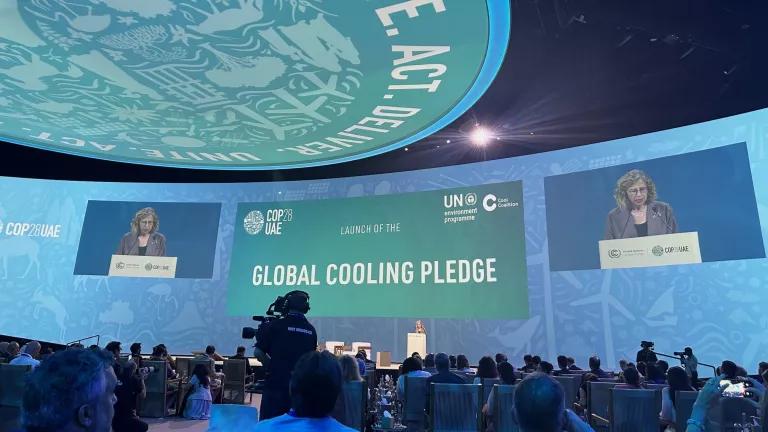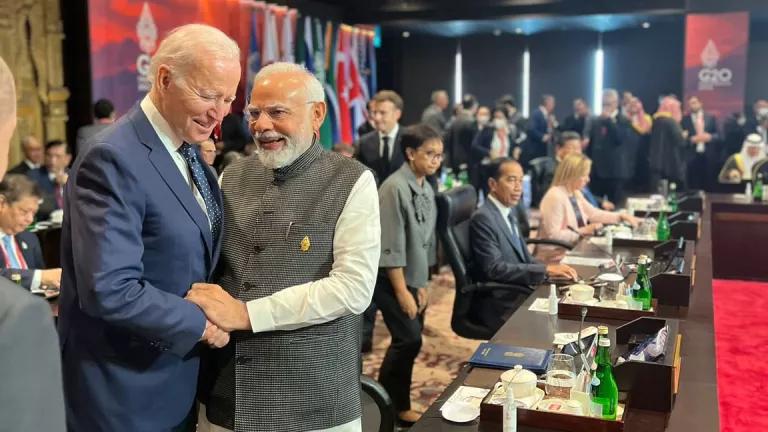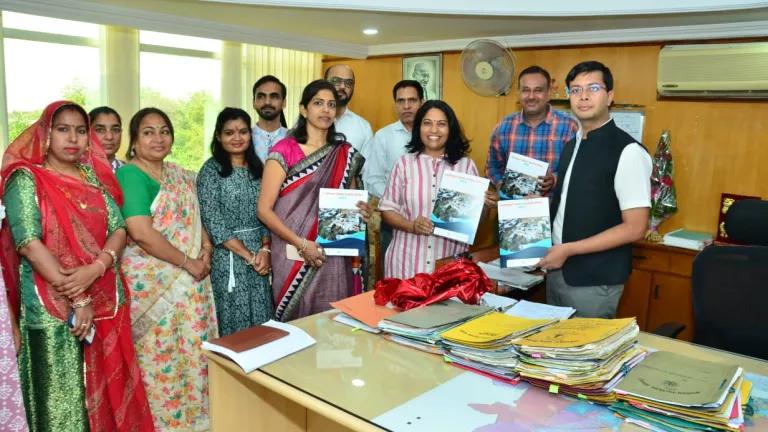India Announces New Climate Actions
India will meet half its energy requirements from renewable energy, and significantly reduce carbon emissions by 2030, Prime Minister Modi announced today at the 2021 United Nations Climate Change Conference (COP26) in Glasgow, Scotland.

India will meet half its energy requirements from renewable energy, and significantly reduce carbon emissions by 2030, Prime Minister Modi announced today at the 2021 United Nations Climate Change Conference (COP26) in Glasgow, Scotland. Prime Minister Modi’s pledge came as part of the two week summit where leaders from around the world gather to discuss climate change and how best to tackle it. India is key to the success of these negotiations, and by rising up to the challenge, India has raised a good platform for talks over the next several days. As global temperatures continue their dangerous upward trajectory, Prime Minister Modi’s announcement bodes well for millions in India, and across the world, already suffering from impacts of the COVID-19 pandemic and facing persistent threats of worsening extreme weather events.
Here are five key announcements from India:
- India's non-fossil energy capacity to reach 500 GW by 2030: With solar and wind energy at the heart of India’s climate goals, the country already aimed to install an ambitious 450 GW by 2030, larger than India’s current total grid capacity. Achieving the goal would make 60% of India’s power capacity to be fossil-free by 2030, way beyond the 40% that India committed under the Paris Agreement. India's new announcement formalizes the goals to reduce dependence on fossil-fuels.
- India will meet 50 per cent of its energy requirements with renewable energy by 2030: In 2021, only about 12% of India's energy requirement is met through renewable energy which constitutes a little over a fourth of the total power capacity. Meeting half the country's energy needs through renewable energy would be a significant jump for India. Higher share of renewable energy also bodes well for rapidly greening electric mobility in the country.
- India will reduce its total projected carbon emissions by one billion tonnes from now to 2030: This is a significant goal for a country with annual emissions about 2.6 billion tons of carbon dioxide that are expected to continue to grow in the coming years. PM Modi outlined how Indian Railways, the world's second largest rail network, will contribute to this goal along with a focus on energy-efficiency.
- By 2030, India will reduce the carbon intensity of its economy to less than 45 per cent: India is largely on track to meet, and even exceed, its Paris Agreement targets: reduce emissions’ intensity of its gross domestic product (GDP) by 33 to 35 percent from 2005 levels by 2030 and with today's announcement India has raised the bar for its own climate commitments. Decoupling economic growth from carbon emissions is what the world needs and India has the opportunity to establish a new model of ensuring health and prosperity that doesn't harm the environment.
- By 2070, India will achieve the target of net zero emissions: While a long-term zero emission goal is welcome for every major economy, the world needs urgent action now. With the enhanced goals that India has announced today, the country could potentially switch to a new carbon-free growth paradigm even earlier.
PM Modi also remarked that meeting India and the world's climate goals would need a significantly large investment and rich countries need to step up their climate finance contributions. India’s bold steps are essential in the fight against climate change and PM Modi's new commitments signal that India is rising up to meet the climate challenge.
In the run up to the climate conference every year, NRDC and partners publish an annual review of India’s actions on climate change. Our latest assessment is available here. The NRDC team will be in Glasgow, actively tracking the negotiations. Here’s a list of key climate and clean energy experts and events that we are organizing.
NRDC and partners are organizing an India focused event titled Changing the Climate for the Most Vulnerable: Lessons on Climate Resilience in India, from Green Villages to Cool Cities on Nov 9th at 3 pm local time, 8.30 pm IST, 10am ET. To register click here.



